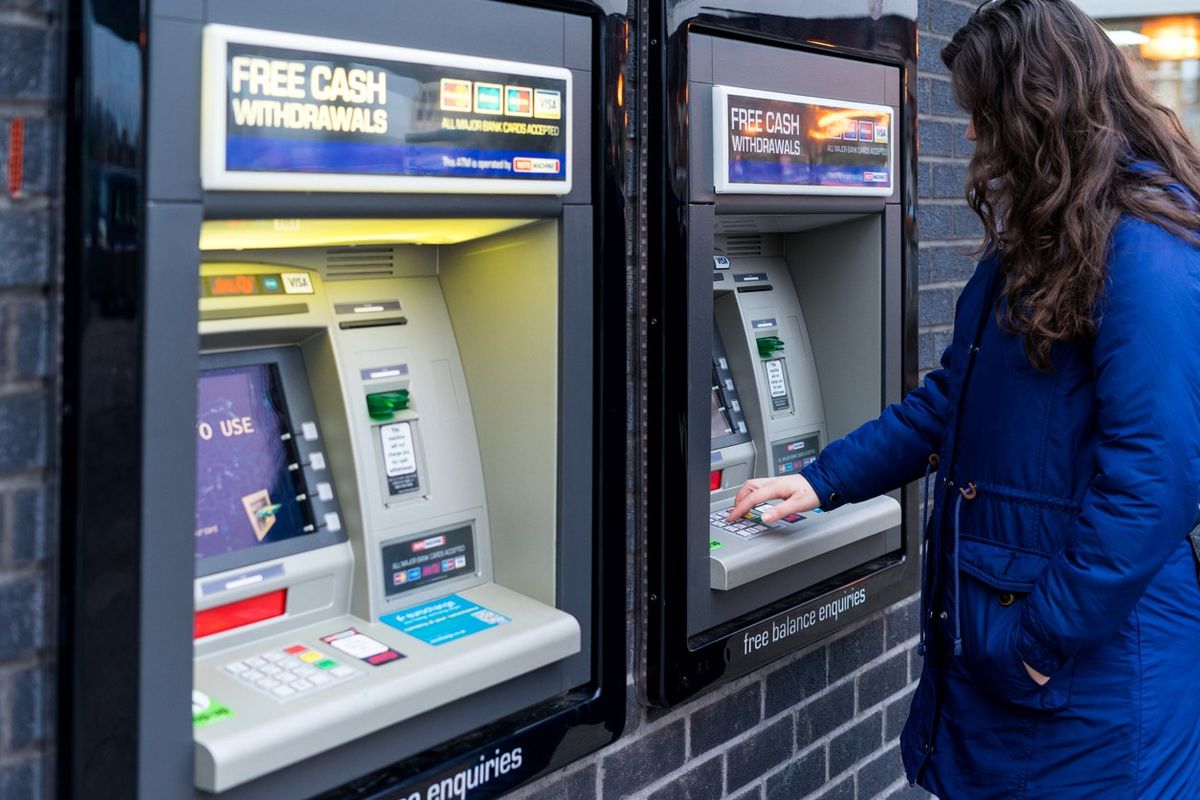The UK’s transition away from cash continues to accelerate, nearly five years after the COVID-19 pandemic, according to a report released today by LINK, the UK's cash access and ATM network.
While the trend towards a low-cash society is clear, the pace of this shift varies significantly across the country, indicating a complex and evolving payment landscape.
Over the past 20 years, there has been a shift away from cash with more customers choosing to pay for things digitally or with contactless cards. According to the most recent industry statistics, cash represented 12 per cent of all payments, down from around one-quarter in 2020, and 60 per cent back in 2008.
LINK’s latest analysis shows that the total value of cash withdrawn from cash machines in every single constituency of the UK has seen a significant fall since COVID. In 2019, £116 billion was withdrawn from ATMs compared to £80bn in 2024, a 31 per cent fall.
This means UK banking customers are withdrawing £100 million less from ATMs every day compared to before the pandemic.
As customers use less cash, total ATM transaction numbers, which includes balance enquires, have also fallen significantly. In 2019, there were 1.73 billion transactions compared to 921 million in 2024, a 47 per cent drop.
However, LINK data shows that the average withdrawal value has increased from £65 to £85 over the same time period. Consumers are visiting ATMs less, but when they do they take out more cash.
Assessing the level of decline in transactions across the parliamentary constituencies reveals significant geographic differences. Over the five years, we can see which parts of the country have moved away from cash more quickly and slowly.
The data shows:
- The total cash withdrawn from ATMs has fallen in every single constituency across the UK with the average constituency withdrawing £1m less every week.
- The fastest move away from cash has been in city centres and more affluent constituencies with Bristol Central, Edinburgh North & Leith and Westminster seeing the biggest shift
- Areas with higher levels of deprivation and digital exclusion are moving away from cash more slowly
- The top 50 constituencies where people have moved away from cash the fastest are dominated by English and Scottish constituencies
- Northern Ireland is the ‘cash heaviest’ part of the UK with the average adult still withdrawing £2,274 in 2024, compared to the national average of £1,424.
Yet cash is still critical to every high street. Even in the quietest and most remote constituencies, over £400,000 was still withdrawn from LINK ATMs every month last year. In total, £79.5bn was withdrawn across the country, and surveys show around five million people still depend on cash.
LINK runs a national financial inclusion programme ensuring that, despite changing consumer behaviour, people can still access cash for free. Some 93.6 per cent of people live within one mile of access to cash.
“COVID changed how we live, how we work, and for many people, how we manage our cash,” John Howells, LINK chief executive, commented.
“Cash use remains popular – we still withdrew £250m a day in 2024. The fact that areas which are more deprived are moving away from cash more slowly is a timely reminder that we cannot afford to leave anyone behind, and that we need to focus more on digital inclusion as part of how technology is rolled out across the UK.”
| 20 areas with fastest declines in ATM withdrawals* | 20 areas with slowest declines in ATM withdrawals* | ||
|---|---|---|---|
| Constituency | Decline | Constituency | Decline |
| Bristol Central | -67% | Weald of Kent | -22% |
| Edinburgh North and Leith | -67% | Leicester East | -27% |
| Cities of London and Westminster | -66% | West Tyrone | -28% |
| Edinburgh South | -65% | Knowsley | -28% |
| Holborn and St Pancras | -65% | Bradford South | -29% |
| Edinburgh East and Musselburgh | -64% | Mid Ulster | -29% |
| Glasgow North | -64% | Kingston upon Hull East | -30% |
| Sheffield Central | -64% | Birmingham Yardley | -30% |
| York Central | -64% | Wolverhampton South East | -31% |
| Leeds Central and Headingley | -63% | Belfast West | -31% |
| Oxford West and Abingdon | -62% | Hartlepool | -31% |
| Islington South and Finsbury | -61% | Bradford East | -32% |
| Edinburgh West | -61% | Merthyr Tydfil and Aberdare | -32% |
| Wimbledon | -61% | Middlesbrough South and East Cleveland | -32% |
| Brighton Pavilion | -61% | Easington | -32% |
| Winchester | -60% | Fermanagh and South Tyrone | -32% |
| Bath | -60% | Birmingham Perry Barr | -33% |
| Edinburgh South West | -60% | Birmingham Hodge Hill and Solihull North | -33% |
| Cardiff South and Penarth | -60% | Blaenau Gwent and Rhymney | -33% |
| Nottingham East | -60% | North Durham | -33% |
* Volume of cash withdrawals from LINK ATMs, 2019 vs. 2024. ATMs within the 2024 constituency boundaries used for comparison in both 2019 and 2024.


